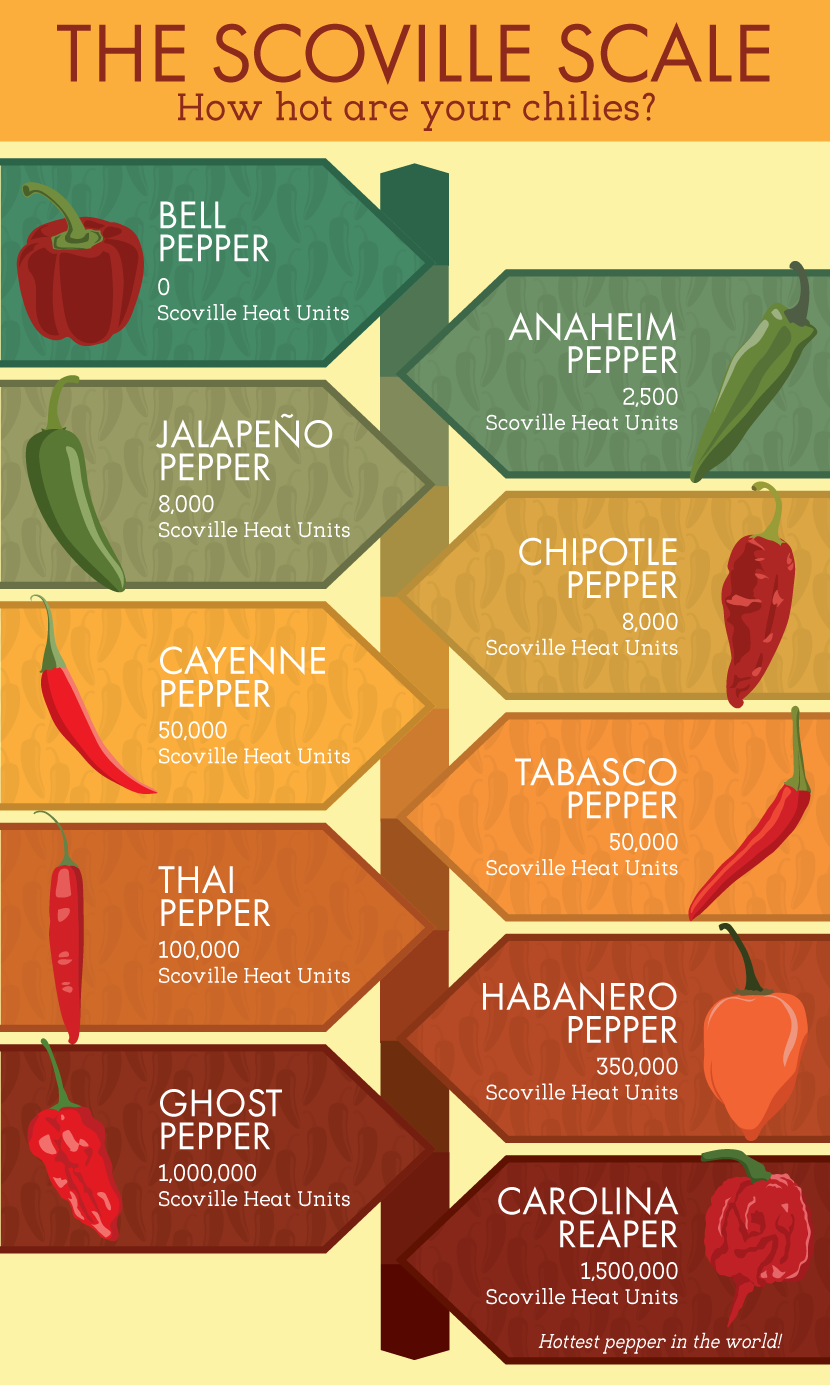Guest Blog from: LIA LEENDERTZ at Fix.com
Chilies make a beautiful and satisfying crop. The colors are stunning: reds, purples, yellows and oranges, and there is a chili to suit every taste, from the delicate and fruity to the heart-stoppingly fiery. You can grow them all yourself as long as you can find a sunny corner for them. They are great plants for growing in pots on a warm patio, and will be even happier in a conservatory or cool greenhouse.
Hot History
Chili peppers, or “chilli peppers” in the UK, originated in South and Central America, traveling to warm parts of Europe and Asia from around the 16th century onwards. They have become a huge part of many Asian cuisines and varieties have developed independently wherever they are grown. Chilies contain natural chemicals called capsaicinoids, which when eaten, cause a burning sensation. Increased heart rate, perspiration, and a rush of endorphins follows. The heat of a chili pepper is measured on the Scoville Scale, a method of measurement created by American pharmacist Wilbur Scoville in 1912. The test is not entirely accurate, depending as it does on whether the heat in dilutions of the particular chili can be detected by a panel of tasters (the higher the figure, the higher the dilution at which it was sensed), but it gives a rough idea of the pepper’s relative fieriness.

Source: Fix.com
Stay tuned for more coming up on the Growing Chili Peppers at Home series from Fix.com
Start your Chili Garden with our Chili Pepper Seed Pack


Love the peppers.